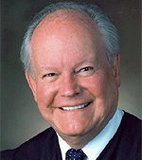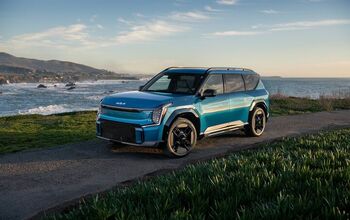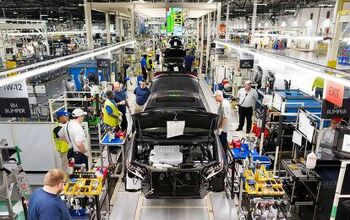California Appeal Court Limits Traffic Stop Automobile Searches
Refusing to get out of a vehicle during a traffic stop does not justify a search of the automobile, the California Court of Appeal ruled Friday. The three-judge panel further developed the US Supreme Court’s finding in Arizona v. Gant that arresting a motorist does not automatically authorize a warrantless search.
On September 27, 2009, Vernon Evans made a left hand turn from West Boulevard onto Slauson Avenue. Los Angeles Police Department Officer Kevin Currie and Officer Prodigalidad claimed Evans failed to signal and that his driving was erratic. When they pulled Evans over, he appeared nervous. Because the stop was at night and in “gang territory,” Evans was ordered out of the car. Evans rolled down his window and asked why he was being stopped, but did not exit.
After reinforcements arrived Officer Currie blasted Evans with pepper spray. Another officer busted a window and tasered Evans. He was yanked out of his car and tackled on the ground. Officer Prodigalidad searched the car and found eleven empty sandwich bags and $65 in cash. The automobile was impounded while Evans was treated at the hospital. At the impound lot, a more thorough search of the car turned up enough cocaine to earn him a four-day jail sentence, with credit for four days time served.
A Los Angeles County Superior Court judge found the search was justified under the “automobile exception” to the Fourth Amendment requirement that searches should be performed only after obtaining a warrant. The appellate court disagreed, citing the precedent set by the Gant ruling that a search incident to arrest is only valid if the suspect can reach his vehicle or there is some reason to think the car contains evidence relevant to the arrest.
“When the initial search of the vehicle was completed, Evans had been tased and detained, and was lying face down on the ground outside the vehicle, with officers on top of him,” Judge Richard D. Aldrich wrote for the court. “Plainly, he did not have access to the car’s interior.”
Prosecutors argued that the presence of drugs in the car would constitute his motive for his crime — refusing to comply with the police officers’ instruction for him to get out of the car. The appellate panel rejected this line of argument as justifying a search of any vehicle at any time.
“It is not difficult to imagine scenarios in which documentary evidence of motive, knowledge, or intent could reasonably be expected to be found in a car even when the driver is arrested for a minor traffic offense,” Aldrich wrote. “There might be evidence of a speeding motorist’s motive in the car: perhaps an appointment card showing he or she was late to a doctor’s visit, or tickets suggesting he or she was in a hurry to attend the final game of the World Series. Or, a vehicle might contain evidence of distractions that caused a motorist to run a red light. Yet these are precisely the sort of traffic offenses which Gant held would not give rise to a reasonable basis to search.”
Because the exceptions did not apply, the court overturned the conviction. A copy of the decision is available in a 180k PDF file at the source link below.
Source:
California v. Evans (Court of Appeal, State of California, 11/4/2011)
[Courtesy: Thenewspaper.com]
More by The Newspaper
Latest Car Reviews
Read moreLatest Product Reviews
Read moreRecent Comments
- Kjhkjlhkjhkljh kljhjkhjklhkjh I'd rather they have the old sweep gauges, the hhuuggee left to right speedometer from the 40's and 50's where the needle went from lefty to right like in my 1969 Nova
- Buickman I like it!
- JMII Hyundai Santa Cruz, which doesn't do "truck" things as well as the Maverick does.How so? I see this repeated often with no reference to exactly what it does better.As a Santa Cruz owner the only things the Mav does better is price on lower trims and fuel economy with the hybrid. The Mav's bed is a bit bigger but only when the SC has the roll-top bed cover, without this they are the same size. The Mav has an off road package and a towing package the SC lacks but these are just some parts differences. And even with the tow package the Hyundai is rated to tow 1,000lbs more then the Ford. The SC now has XRT trim that beefs up the looks if your into the off-roader vibe. As both vehicles are soft-roaders neither are rock crawling just because of some extra bits Ford tacked on.I'm still loving my SC (at 9k in mileage). I don't see any advantages to the Ford when you are looking at the medium to top end trims of both vehicles. If you want to save money and gas then the Ford becomes the right choice. You will get a cheaper interior but many are fine with this, especially if don't like the all touch controls on the SC. However this has been changed in the '25 models in which buttons and knobs have returned.
- Analoggrotto I'd feel proper silly staring at an LCD pretending to be real gauges.
- Gray gm should hang their wimpy logo on a strip mall next to Saul Goodman's office.


































Comments
Join the conversation
The authorities are always curious about what people carry, have, possess, or control. While we hear about contraband all the time, how many searches come up empty and are not reported? This may evoke a No harm, No Foul response but the point of civil liberties is not to allow the state to treat it's citizens unfairly. At least not in this country.
The drug war rolls on.......